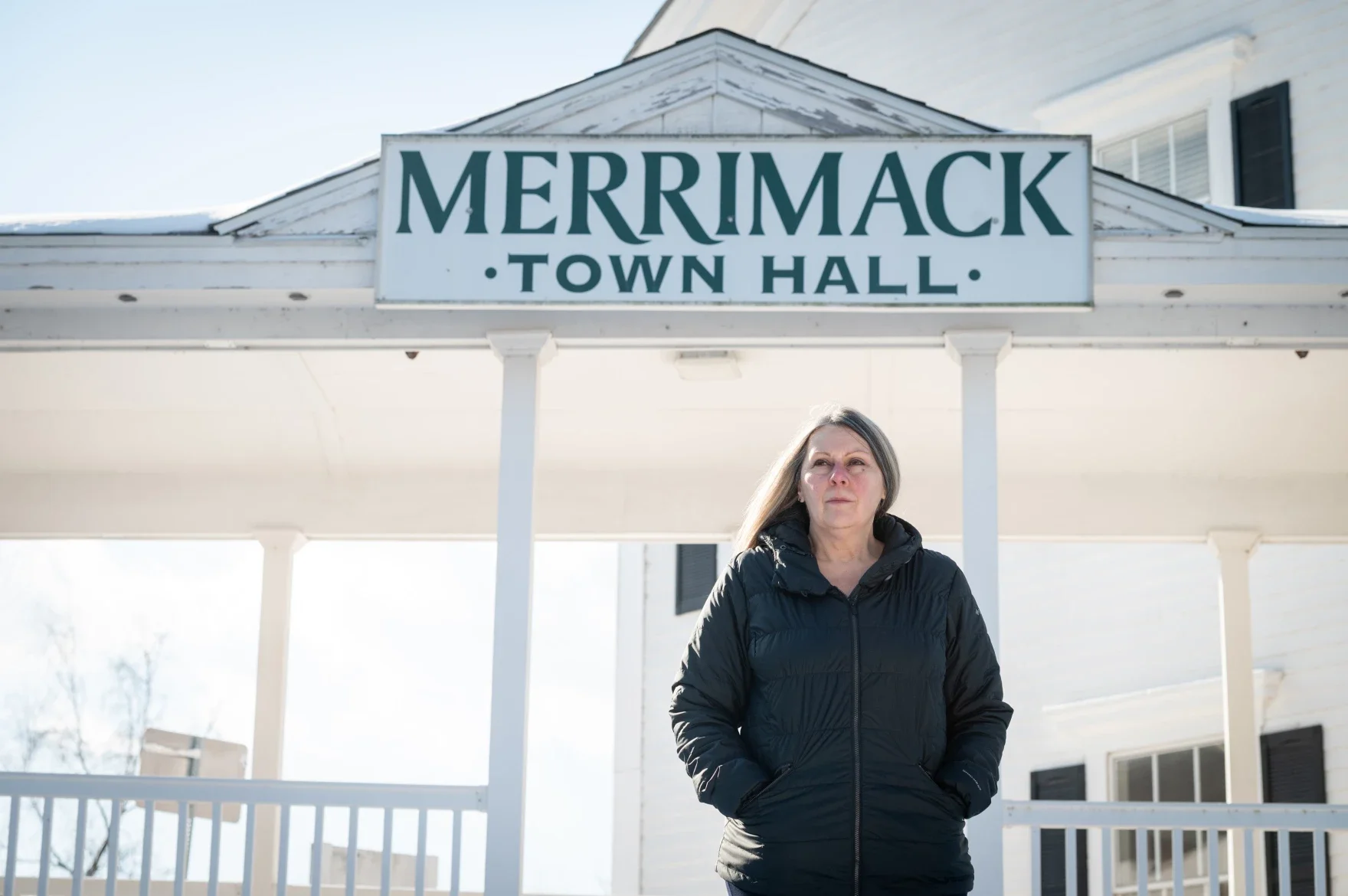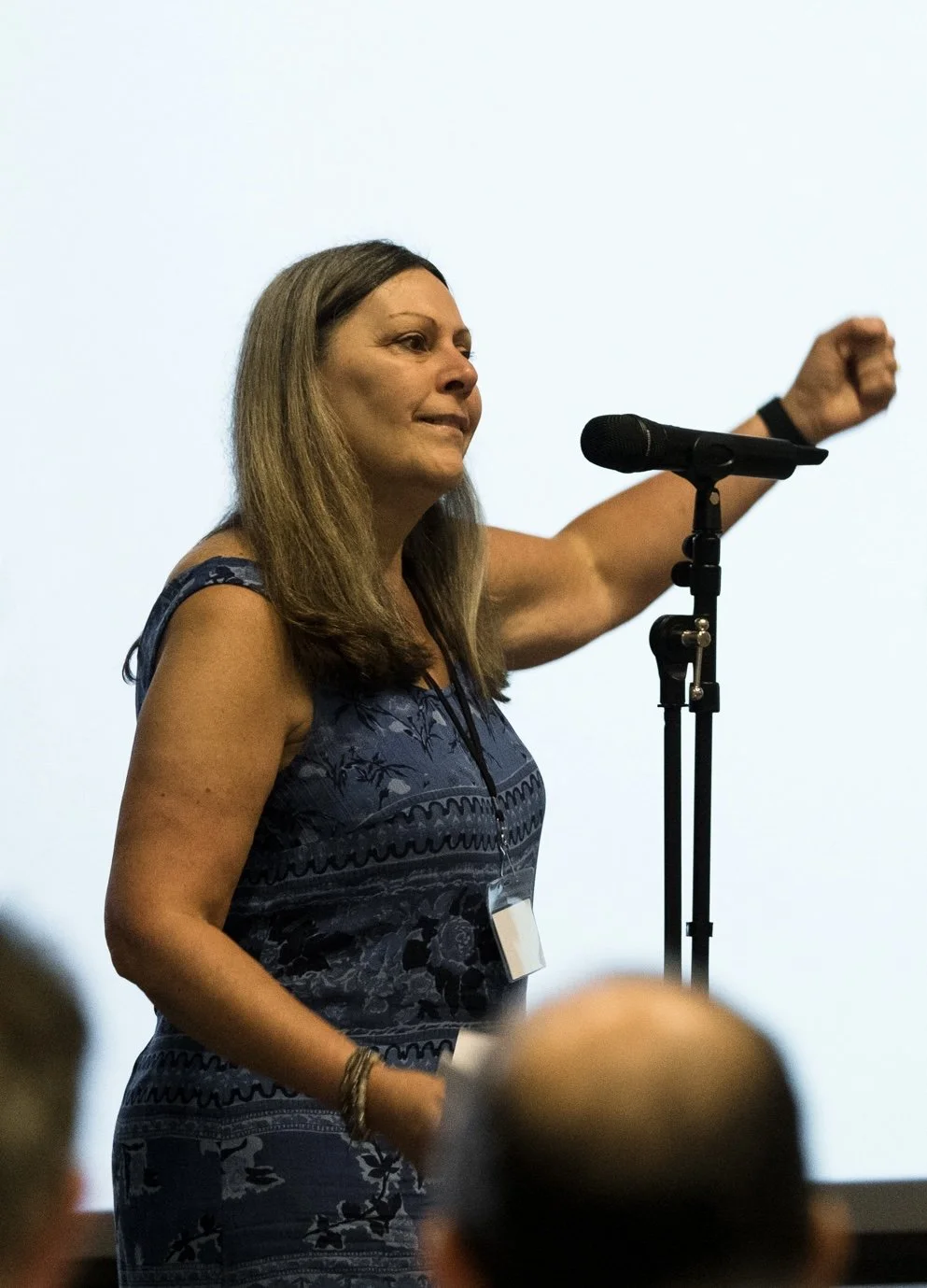Environmental Justice in New Hampshire: Advocating for Communities Left Behind
Laurene Allen. Photo courtesy of the Goldman Environmental Prize.
When communities face disproportionate environmental burdens, the consequences ripple in the form of preventable illness, increased healthcare expenses, reduced workforce productivity, and diminished quality of life. Laurene Allen, Cofounder of Merrimack Citizens for Clean Water and the National PFAS Contamination Coalition, has witnessed firsthand how environmental contamination affects New Hampshire’s communities.
Drawing from her experience as a clinical social worker and environmental advocate, Allen spoke to the New Hampshire Center for Justice & Equity (NHCJE) about the importance of comprehensive environmental justice legislation to protect residents, particularly working-class communities, rural towns, and vulnerable populations.
Forever Chemicals: New Hampshire’s PFAS Challenge
In 2016, when the state Department of Environmental Services revealed that Merrimack’s water supply was contaminated with high levels of PFAS, also known as forever chemicals, leaked by a nearby plastics plant, Laurene Allen started a grassroots campaign that earned her the 2025 Goldman Environmental Prize.
Allen described it as "the largest contamination investigation and area of contamination in the history of New England," but the problem extended far beyond this single site. PFAS chemicals have been detected across New Hampshire in compost, groundwater, air pollution from manufacturing facilities, and improperly managed waste sites.
This class of nearly 14,000 toxic substances has become a growing concern for New Hampshire residents, as they contribute to cumulative impacts of pollution and put added strain on healthcare systems, environmental cleanup, and economic development, especially in communities of color and low-income communities.
Rural Communities: The Forgotten Environmental Justice Areas
Beyond the high-profile PFAS contamination in Merrimack, New Hampshire's environmental justice conversation typically centers on urban centers like Manchester and Nashua, but Allen highlights that rural communities face equally severe challenges. "We don't stop and think about rural towns in New Hampshire that have a manufacturing entity that might not be behaving itself so well, but is the provider of jobs," she stated.
The economic dependence on polluting industries creates a dynamic where communities must choose between jobs and health. "Your safety and wellness should not depend on your zip code," Allen emphasized. Communities with large industrial facilities and predominantly working-class populations are at a greater risk of environmental contamination. Residents may notice air or water quality problems, but lack the resources or political influence to demand accountability.
“We don’t stop and think about rural towns in New Hampshire that have a manufacturing entity that might not be behaving itself so well, but is the provider of jobs . . . Your safety and wellness should not depend on your zip code.”
"Sacrifice Zones": When Communities Bear Unequal Burdens
The concept of "sacrifice zones", defined by the Center for Health, Environment & Justice (CHEJ) as “communities in proximity to pollution produced by intensive and concentrated industry” which have “historically consisted of low income and/or minority populations due to redlining, low property values, and other social factors,” plays out across New Hampshire.
“I first heard that phrase several years ago from a woman on the South Side of Tucson who had been fighting military contamination,” recalled Allen. “It's also common in pipeline projects being pushed out of wealthy communities that don't want them there,” she added. This pattern repeats with landfills, incinerators, and other unwanted facilities that get sited in underserved communities with less political power.
In Bethlehem, NH, the ongoing battle regarding North Country Environmental Services (NCES) landfill’s contaminated leachate - a toxic liquid formed when rainwater moves through waste - is an example of the potential for community resistance. After years of pressure from towns and advocates regarding the environmental and health impacts of landfills, Governor Ayotte signed HB 566 into law this year, requiring trash companies to submit detailed management plans for leachate.
Legislative Gaps and Regulatory Rollbacks Leave People Vulnerable
For Allen, the most troubling aspect is the lack of broader environmental protections. New Hampshire currently does not have a cumulative impacts environmental justice legislation, and despite an attempt to pass a law (SB267) requiring the Department of Environmental Services (DES) to study cumulative impacts and report on the findings and potential rulemaking to the legislature by November 1, 2025, the bill was ultimately voted inexpedient to legislate.
At the federal level, the current administration’s "eradicating of the phrase environmental justice", according to Allen, the closing of the U.S. Environmental Protection Agency (EPA)’s independent research and development office, and the recent news that the EPA seeks to reverse to critical PFAS Drinking Water Protections, “don’t match what's happening in connection to our health and environmental wellness”, she added. The result is a regulatory vacuum that creates barriers to effective environmental protection and allows polluting industries to avoid accountability rather than prioritizing community health.
Building a Better System: Policy Solutions for Environmental Equity
Despite the challenges facing New Hampshire’s communities, Allen sees clear opportunities for legislative action that can address environmental injustices while strengthening the state's long-term health and prosperity. "We know there's a better path forward that's not only more sustainable, but it's more equitable," she argues.
Beyond cumulative impacts legislation to prevent the concentration of multiple pollution sources in already overburdened areas, Allen argues the Granite State would also benefit from environmental justice mapping of the state’s demographics and contamination patterns, since the increasingly defunded federal tools may not provide a complete picture.
Building on Allen's successful organizing model in Merrimack, which mobilized 93% voter approval for water filtration funding, she believes the state should invest in community empowerment programs. These would provide resources for grassroots organizing and independent environmental monitoring, allowing communities to gather their own data and advocate effectively for their interests. Equally important is mandatory community engagement that goes beyond token public hearings to ensure meaningful participation in all permitting processes affecting vulnerable communities.
Regarding PFAS, Allen believes the state's response must expand beyond drinking water to address the full scope of the problem. New Hampshire should implement comprehensive regulations covering air emissions, soil contamination, and biosolids use, targeting elimination rather than reduction. “The technology is there to eliminate. These [PFAS] are forever chemicals that never go away,” she stressed.
“We know there’s a better path forward that’s not only more sustainable, but it’s more equitable”
New Hampshire Can't Fall Behind on Environmental Justice
As federal environmental protections are being rolled back, state and local governments have greater responsibility. "It falls upon local communities to try to stand up for themselves,” noted Allen. “How can you do that when you don't have the backup of the power of the federal government, the power of your state?"
New Hampshire has an opportunity to lead on environmental justice, creating a model that protects all residents while maintaining economic competitiveness. But this requires moving beyond the assumption that environmental problems only affect urban areas or that economic development must come at the expense of community health. “The question isn't whether New Hampshire can afford to act, but whether it can afford not to,” Allen emphasized. The time for comprehensive environmental justice legislation is now.
“It falls upon local communities to try to stand up for themselves. How can you do that when you don’t have the backup of the power of the federal government, the power of your state? . . . The question isn’t whether New Hampshire can afford to act, but whether it can afford not to.”
About Laurene Allen
Laurene Allen
Laurene Allen, a resident of Merrimack, NH, co-founded Merrimack Citizens for Clean Water in 2016 after discovering her family’s drinking water was contaminated with PFAS. For over nine years, she has advocated for impacted communities, engaging with officials at all levels and organizing residents locally and nationally. She co-authored a 2019 Environmental Health publication, Making the Invisible Visible, based on community health data. Laurene also co-founded the National PFAS Contamination Coalition and serves on its leadership team. She continues to support communities nationwide, working with residents, scientists, and advocates to end PFAS exposure and protect public health.


